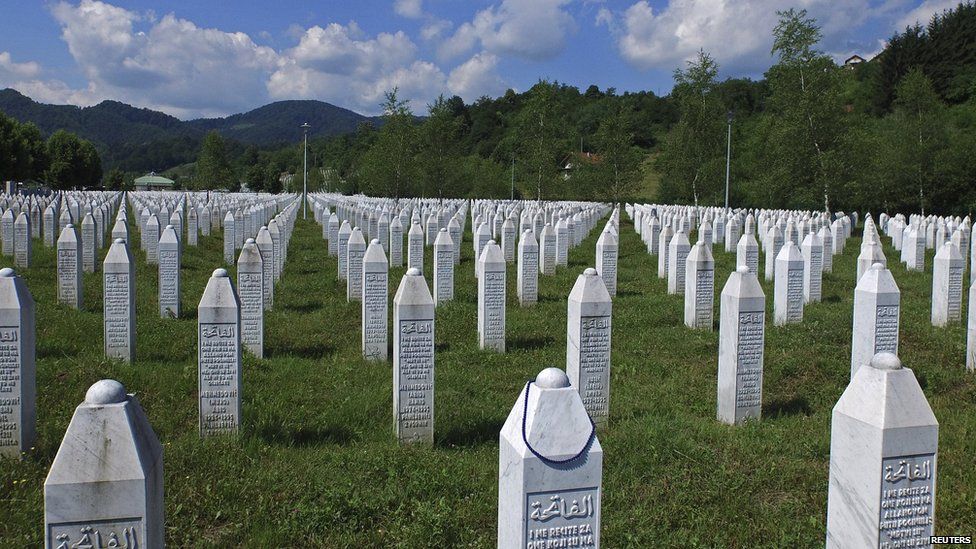Russia vetoes UN move to call Srebrenica 'genocide'
- Published

Russia has vetoed a United Nations Security Council resolution that would have described the Srebrenica massacre as "genocide".
Four other members of the council abstained while the remainder voted in favour.
The killing of some 8,000 Muslim men and boys in 1995 by Bosnian Serb troops was the worst massacre in Europe since World War Two.
The motion had angered Serbia, which rejects the term.
It had been drafted to mark the 20th anniversary of the atrocity, which came amid the bloody break-up of Yugoslavia into independent states.
During the Bosnian War, which saw Serbia-backed Bosnian Serb forces fighting the Muslim-led Bosnian government, thousands seeking shelter at what was supposed to be a UN refuge were slaughtered.
The resolution said that "acceptance of the tragic events at Srebrenica as genocide is a prerequisite for reconciliation".
More that 8,000 men and boys died at Srebrenica, as Bridget Kendall reports
But Russia's UN Ambassador Vitaly Churkin said adopting it "would be counter-productive, would lead to greater tension in the region".
The vote had been put back a day to allow the US and the UK - which drafted the resolution - to try to persuade Russia not to veto it.
The Serbian President, Tomislav Nikolic, called it a "great day" for his country, the AFP agency reported.
Serbia does not have a seat on the Security Council, and had asked ally Russia to block the resolution, warning it would be divisive.
The US ambassador to the UN, Samantha Power, said: "Russia's veto is heart-breaking for those families and it is a further stain on this council's record."
A UN tribunal at The Hague has already convicted numerous people of genocide in relation to the Srebrenica killings, but a formal recognition by the UN could compel individual states to pursue prosecutions.
- Published17 May 2012
- Published6 July 2015
- Published4 April 2022